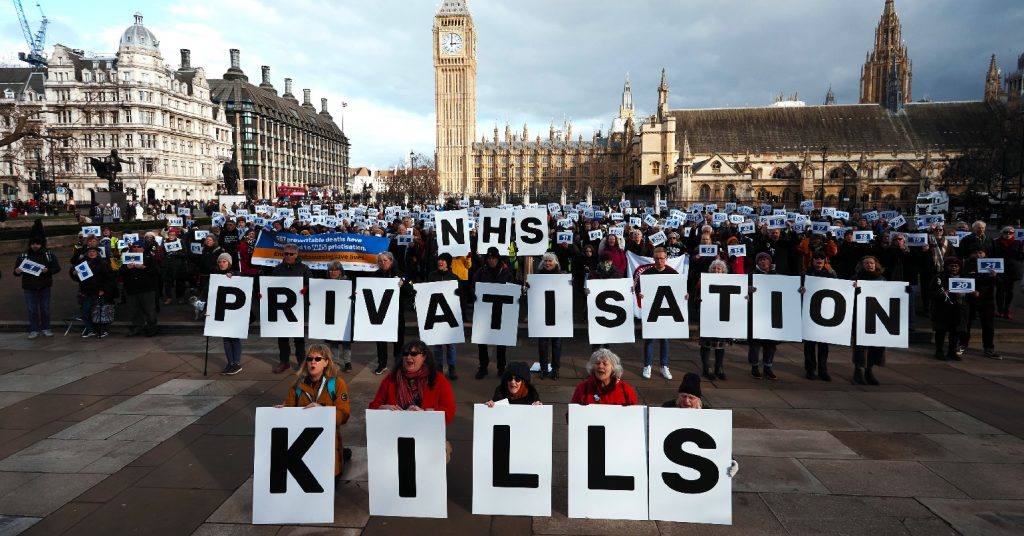Forcing mass academisation is an ideological assault on our schools

Twenty years ago academies were touted as the revolution in education which was going to drive up standards across the board. The shining princes of private enterprise were going to ride to the rescue of our struggling schools, sprinkle them with the magic pixie dust of the marketplace and hand out gold stars of school improvement all round.
Twenty years later, academisation as the magic answer to raising school standards is the fairy tale that never came true. It’s an experiment that’s been tried, the results are in, and they’re deeply underwhelming. Some academies are good schools. Some aren’t. Some have succeeded in improving the schools they have taken over. Others quite obviously haven’t.
The evidence that academisation improves schools just isn’t there. The Education Select Committee, the National Education Union and research bodies like the Local Schools Network have all found the same thing: being an academy does not necessarily improve standards.
In fact, recent research conducted on behalf of the Local Government Association showed Local Authority schools outperforming academies. 92 per cent of council-maintained schools were ranked good or outstanding by OFSTED in January 2022, compared with only 85 per cent of academies which have been graded since conversion.
And only 45 per cent of academies converted before August 2018 have managed to improve standards from inadequate or requires improvement to good or outstanding, compared with 56 per cent of Local Authority schools in the same time frame.
No-one is denying that some academies are good schools, but the myth of academies as a universal panacea has long been busted. Which is why I found reading the government’s recent White Paper to find it touting a fully Trust-led system as its vision for the future of our schools frankly astonishing.
Greens against academisation
As Greens we’ve stood against academisation from the start, but even those who twenty years ago thought academisation was the shining steed the rescuing prince rode in on, must now have come to see it as a dead horse being flogged.
The only possible explanations for the government’s White Paper are either – a total lack of any new ideas, a delusion that you can try the same thing you’ve tried before and expect a different result, or a pure ideological determination to find any corner of this country not yet privatised and drag it kicking and screaming into a marketplace.
The government’s attack on communities’ schools
The White Paper’s stated aim – to have all schools part of a ‘strong Multi Academy Trust’ by 2030 – is certainly not answering a need or a wish from schools or communities: the number of schools choosing to become academies has been steadily falling year on year for some time now. To have all schools part of a trust by 2030, the pace of conversion would have to be a forced one.
A potential method for the forced pace of academisation is certainly becoming clear: never one to let a crisis go to waste the government are sending OFSTED round at a cracking pace to pass judgement on schools reeling from two years of intense Covid upheaval. An inadequate OFSTED judgement for a Local Authority school of course means academisation.
Funnily enough, an inadequate OFSTED report for an academy doesn’t bring it back into the council fold. There is no path back from academisation.
We know how many of our schools are at the heart of their local community. Every time we have to talk about reductions to pupil admissions within a certain school we hear the passion and the love and the involvement of that community in their school. Academies are unaccountable to local communities. There is no requirement for them to have parent governors, or indeed a governing body at all. Parents who are unhappy with their child’s academy cannot turn to the local authority for help. Democratic accountability is lost. And if an academy is part of a Trust – and I’m assuming the White Paper’s repeated use of the phrase ‘a strong Multi Academy Trust’ is supposed to reassure us they’re not talking about the kind of Trusts we’ve spent years watching fold and go bankrupt – no, these Trusts will all be strong – if an academy is part of a Trust then the real decisions about how that school is run are being taken in an office many miles away from the community it serves.
The stated direction of travel outlined in the White Paper is alarming, and purely ideological. It does nothing to tackle the real challenges our schools are facing – inadequate funding, recruitment and retention, and ongoing problems with Covid.
Indeed, the White Paper talks of raising standards in schools but never addresses the Covid elephant in the playground – with still no real mitigations in place, schools risk more disruption with every wave. It talks of recruiting the best teachers and then giving them the best training – but if every new Covid variant results in teachers and teaching assistants off sick en masse, pupils actually end up being taught by a rotation of supply staff.
Also, the Office for National Statistics tells us that teaching is now one of the professions with the highest rates of Long Covid. New Department for Education research shows more than a third of secondary schools and a quarter of primaries now reporting workforce challenges as a result of the ever-rising tide of Long Covid. Without addressing the unhindered spread of Covid within schools, and its disabling effect on those who work there, the government’s ambition of recruiting the brightest and best into the teaching profession isn’t going to work.
There are real problems in our schools which the ideology of an academisation drive does nothing to solve. In fact the threat to academise our schools at pace risks a level of disruption they do not need, removes democracy from the school system and separates schools from the community.
PS. We hope you enjoyed this article. Bright Green has got big plans for the future to publish many more articles like this. You can help make that happen. Please donate to Bright Green now.




Academies were always about acquiring school grounds and never about improving education. Tony Blair was responsible for this slippery educational slope.